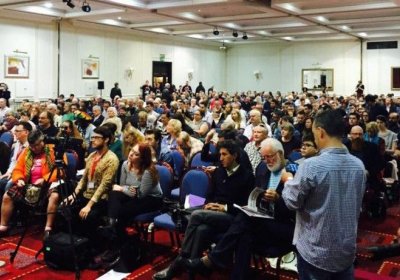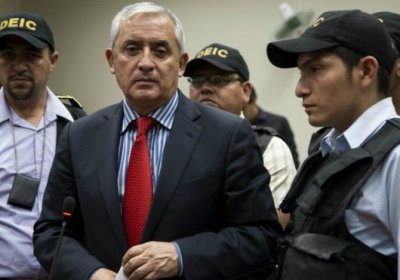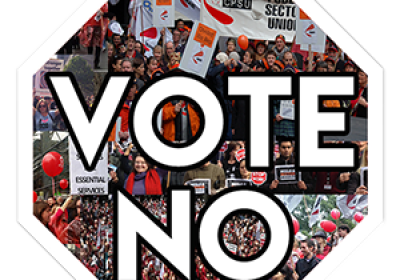 About 150 million workers across India went on strike on September 2 to protest the "pro-business" policies of the Narendra Modi-led BJP government.
Trade unions are opposing government plans to sell off stakes in state-run companies and change labour laws, which will put jobs at risk and worsen working conditions.
About 150 million workers across India went on strike on September 2 to protest the "pro-business" policies of the Narendra Modi-led BJP government.
Trade unions are opposing government plans to sell off stakes in state-run companies and change labour laws, which will put jobs at risk and worsen working conditions.
1068
 About 150 million workers across India went on strike on September 2 to protest the "pro-business" policies of the Narendra Modi-led BJP government.
Trade unions are opposing government plans to sell off stakes in state-run companies and change labour laws, which will put jobs at risk and worsen working conditions.
About 150 million workers across India went on strike on September 2 to protest the "pro-business" policies of the Narendra Modi-led BJP government.
Trade unions are opposing government plans to sell off stakes in state-run companies and change labour laws, which will put jobs at risk and worsen working conditions.
Hundreds of people crammed into the Marriott Hotel in Glasgow on August 29 for the launch of RISE – Scotland’s Left Alliance. The new coalition of the left will stand candidates in all eight regional seats in the 2016 Scottish elections.
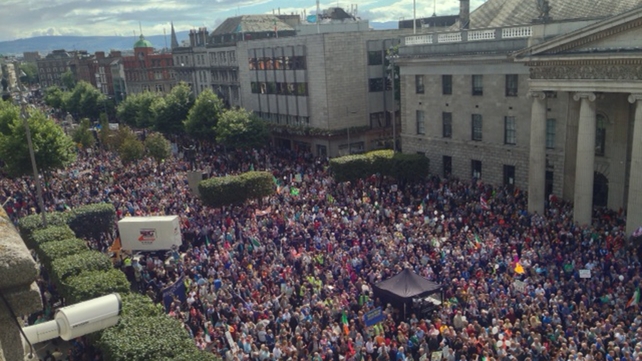 Thousands of people gathered in Dublin, August 29.
Tens of thousands of people took part in a huge anti-water charge rally in Dublin on August 29 under the banner: “We’re not going away, you know!”
This is the fifth demonstration Right2Water has organised in opposition to deeply unpopular water charges. About 500,000 people have attended Right2Water protests to date.
Thousands of people gathered in Dublin, August 29.
Tens of thousands of people took part in a huge anti-water charge rally in Dublin on August 29 under the banner: “We’re not going away, you know!”
This is the fifth demonstration Right2Water has organised in opposition to deeply unpopular water charges. About 500,000 people have attended Right2Water protests to date.
 Big protest against Japan's Prime Minister Shinzo Abe's security bill outside parliament in Tokyo, August 30.
About 120,000 people rallied outside Japan’s parliament on August 30 opposing what they call the “voluntary war law”.
Big protest against Japan's Prime Minister Shinzo Abe's security bill outside parliament in Tokyo, August 30.
About 120,000 people rallied outside Japan’s parliament on August 30 opposing what they call the “voluntary war law”.
Just hours after an arrest warrant was issued against him, Guatemalan President Otto Perez Molina announced he would step down from office on September 2, in the face of a worsening corruption scandal and huge anti-government protests. The next day, a judge sentenced Perez Molina to a provisional jail sentence while the charges against him are heard.
 Colombian right-wing paramilitaries.
Venezuela and Colombia recalled their ambassadors for consultations on August 26. The move came after a meeting between the two nations’ foreign ministers failed to calm diplomatic tensions over Venezuelan border closures and Colombian smuggling activities.
The recall was followed the next day by further border closures announced by Venezuelan President Nicolas Maduro.
Colombian right-wing paramilitaries.
Venezuela and Colombia recalled their ambassadors for consultations on August 26. The move came after a meeting between the two nations’ foreign ministers failed to calm diplomatic tensions over Venezuelan border closures and Colombian smuggling activities.
The recall was followed the next day by further border closures announced by Venezuelan President Nicolas Maduro.
 #BlackLivesMatter activists Marissa Johnson and Mara Willaford stormed the stage as Sanders began speaking and demanded an opportunity to address racial injustice. Seattle, August 8.
There is a lull in the large mass mobilisations associated with the Black Lives Matter movement, but the campaign targetting racism and police brutality remains central to politics in the US.
#BlackLivesMatter activists Marissa Johnson and Mara Willaford stormed the stage as Sanders began speaking and demanded an opportunity to address racial injustice. Seattle, August 8.
There is a lull in the large mass mobilisations associated with the Black Lives Matter movement, but the campaign targetting racism and police brutality remains central to politics in the US.
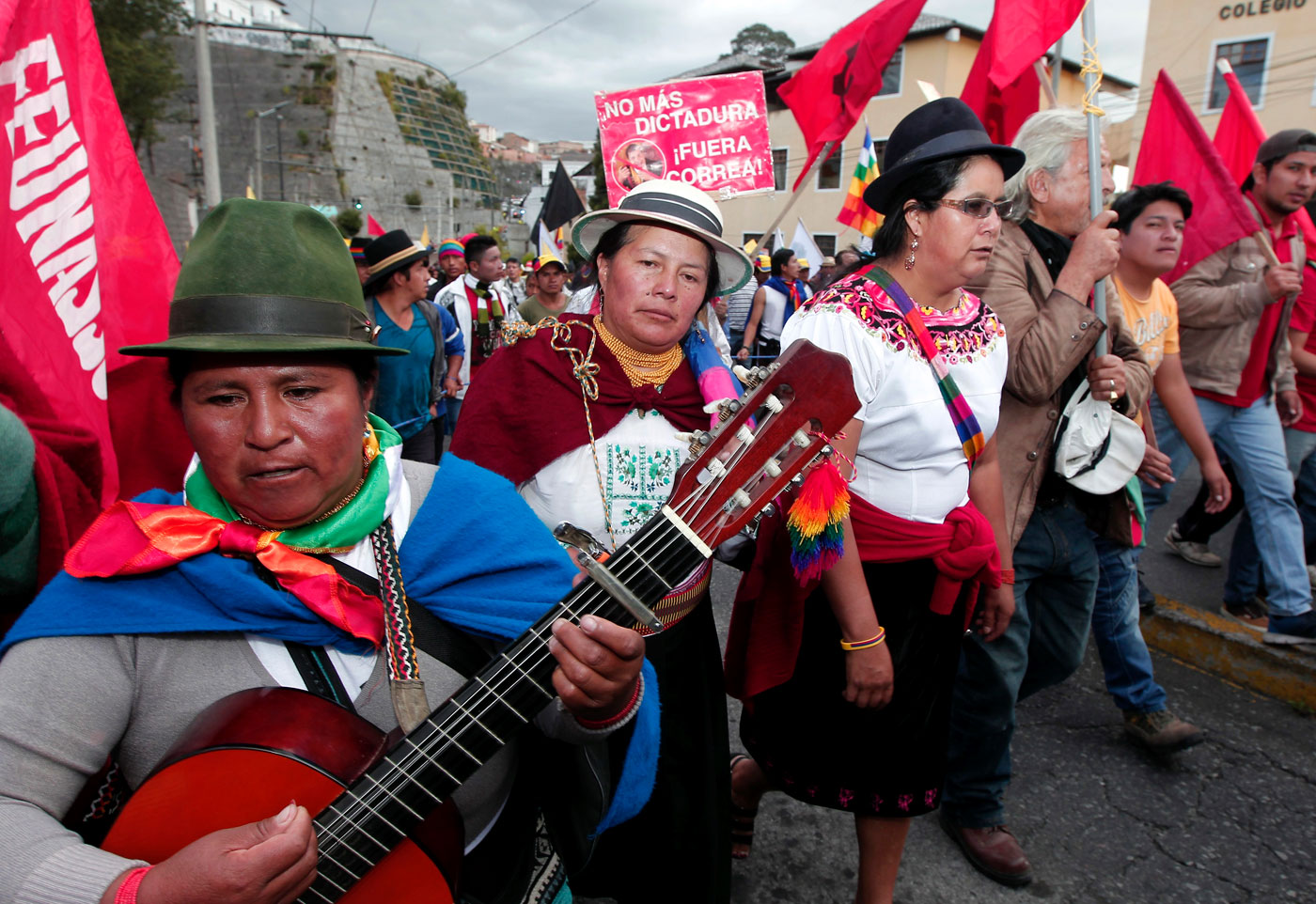 Indigenous anti-Correa protesters.
Ecuador’s President Rafael Correa is facing the most important challenge yet to his self-styled “Citizens' Revolution”.
A range of indigenous groups, trade unions and leftist parties mobilised across the country on August 13. Their long list of demands included calls for land reform, opposition to mining, support for bilingual education and the shelving of the government’s proposed water and labour laws.
Indigenous anti-Correa protesters.
Ecuador’s President Rafael Correa is facing the most important challenge yet to his self-styled “Citizens' Revolution”.
A range of indigenous groups, trade unions and leftist parties mobilised across the country on August 13. Their long list of demands included calls for land reform, opposition to mining, support for bilingual education and the shelving of the government’s proposed water and labour laws.
The community assembly outside the Hutchison terminal at Port Botany is holding firm against a threat by the NSW Port Authority to evict the gathering from the entrance to the facility. There was a similar stand-off at Fishermans Island, Port of Brisbane.
The assemblies have been maintained for more than four weeks to protest against the sacking of 97 waterside workers by the giant Hutchison company, part of the biggest multinational stevedoring corporation in the world.
Hundreds of people from across NSW gathered outside AGL's HQ on September 2 to mark the 100th week of a protest first initiated by Camden residents angry that AGL is allowed to frack near their homes. AGL first started fracking in Camden, south west Sydney, in 2001.
Speakers included Jennifer Schoelpple; Anne Thompson, an original Knitting Nanna from the Northern Rivers; Greens MP Jeremy Buckingham; and Julie Lyford, president of Groundswell Gloucester.
Local residents of the Sydney suburb of St Peters successful halted what they suspected was an illegal attempt to remove asbestos from the planned St Peters Interchange site in the ecologically and financially irresponsible $15 billion WestConnex road-tunnel project.
Staff at the federal Department of Human Services (DHS) started voting on a new enterprise bargaining agreement (EBA) on September 4. The public service union strongly recommended a No vote.
The Community and Public Sector Union (CPSU) has been campaigning hard against new departmental EBA offers that cut wages and conditions.
About 34,000 workers at DHS are set to vote down a management proposal that reflects the Abbott government's hard line against workers and unions in its own workforce, as a test case for wage and conditions cuts throughout all sectors of the economy.
- Page 1
- Next page
